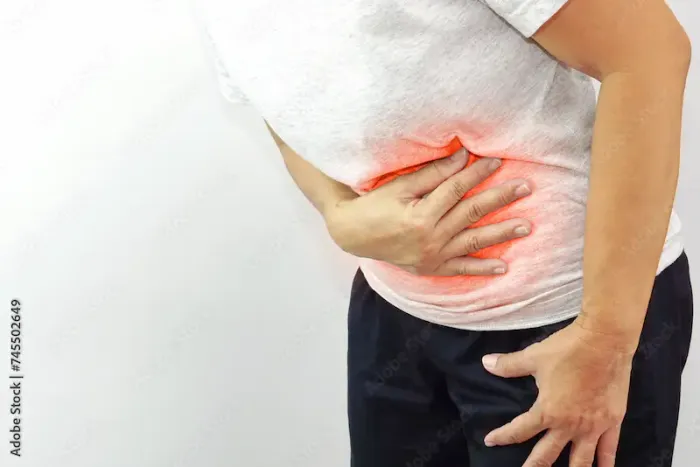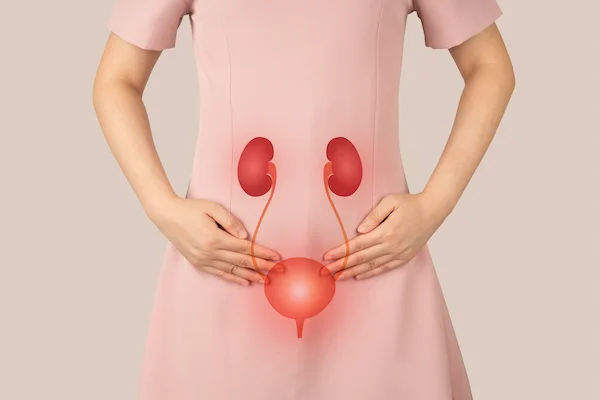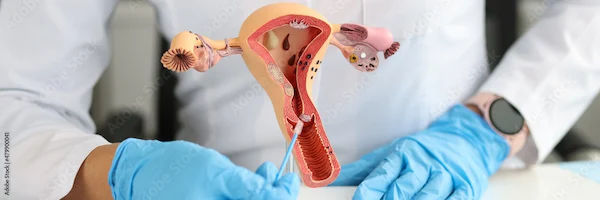Bowel And Bladder Problems After Hysterectomy
Experiencing bowel or bladder issues after a hysterectomy? Learn about common post-surgery problems like constipation, incontinence, and frequency, and discover potential solutions.


Introduction
A hysterectomy is a common surgical procedure where a woman’s uterus (and sometimes other reproductive organs) is removed. While it can help treat conditions like fibroids, endometriosis, or cancer, some women experience bowel and bladder problems afterward. If you’ve had a hysterectomy and are facing issues like constipation, incontinence, or frequent urination, know that you’re not alone—and there are ways to manage these concerns.
Why Do Bowel and Bladder Problems Happen After Hysterectomy?
During a hysterectomy, nearby organs like the bladder and intestines may be affected due to their close proximity to the uterus. The surgery can sometimes lead to:
Bladder dysfunction (e.g., urinary incontinence, frequent urination, difficulty emptying the bladder).
Bowel issues (e.g., constipation, bloating, or changes in bowel movements).
Pelvic floor weakness, which supports bladder and bowel control.
These problems may arise due to nerve damage, changes in pelvic muscle support, or postsurgical swelling.
Common Symptoms to Watch For
The common symptoms to watch for are:
Bladder Problems
Urinary incontinence (leaking urine when coughing, sneezing, or exercising).
Frequent urination (needing to go often, even at night).
Difficulty emptying the bladder (feeling like you can’t fully empty it).
Urinary tract infections (UTIs) (burning sensation, urgency).
Bowel Problems
Constipation (difficulty passing stools).
Bloating and gas.
Changes in bowel habits (looser or harder stools).
Straining during bowel movements.
Consult Top Nephrologist
How to Manage Bowel and Bladder Issues After Hysterectomy?
Ways to manage bowel and bladder issues after hysterectomy:
For Bladder Problems
Pelvic Floor Exercises (Kegels) – Strengthening these muscles can improve bladder control.
Stay Hydrated – Drink enough water, but limit caffeine and alcohol, which irritate the bladder.
Bladder Training – Gradually increase the time between bathroom visits to improve control.
Weight Management – Excess weight can put pressure on the bladder.
See a Specialist – If symptoms persist, a urologist or pelvic floor therapist can help.
For Bowel Problems
High-Fiber Diet – Eat fruits, vegetables, whole grains, and legumes to prevent constipation.
Stay Active – Gentle exercises like walking can help regulate bowel movements.
Hydration – Drink plenty of water to soften stools.
Probiotics – Yogurt or probiotic supplements can improve gut health.
Avoid Straining – Use a small footstool while sitting on the toilet to ease bowel movements.
When to Seek Medical Help?
While some discomfort is normal after surgery, consult a doctor if you experience:
Severe pain during urination or bowel movements.
Blood in urine or stool.
Persistent constipation despite dietary changes.
Frequent UTIs or inability to control bladder/bowel movements.
How Apollo 24|7 Can Help?
If you're struggling with posthysterectomy bowel or bladder issues, Apollo24|7 offers expert consultations with gynecologists, urologists, and physiotherapists who specialize in pelvic health. You can also book diagnostic tests if needed.
Take the Next Step
Call us for a consultation.
Book an appointment via the Apollo 24|7 app.
Final Thoughts
Bowel and bladder problems after a hysterectomy can be frustrating, but they are often manageable with the right care. Listen to your body, make small lifestyle adjustments, and don’t hesitate to seek professional help if needed. You deserve to feel comfortable and confident in your daily life!
Consult Top Nephrologist
Consult Top Nephrologist

Dr. Pardha Saradhi
Nephrologist
9 Years • MBBS, MD-DNB (Gen. Med.), DNB (Nephro)
Hyderabad
Apollo Hospitals D R D O kanchanbagh, Hyderabad
(75+ Patients)

Dr Praveen Kumar Etta
Nephrologist
10 Years • MBBS,MD DM(SGPGI) FORMER ASST(PIMS)
Hyderabad
Apollo Spectra Ameerpet, Hyderabad

Dr. Aswini Kumar Panigrahi
Nephrologist
23 Years • MBBS, MD (Int. Med.), DNB Nephro
Hyderabad
Apollo Hospitals Jubilee Hills, Hyderabad
(225+ Patients)

Dr. Manju Kamal
Nephrologist
12 Years • MBBS,MD(General Medicine), DNB,DM(Nephrology)
Angamaly
Apollo Hospitals Karukutty, Angamaly
Dr Ch Sashidhar
Nephrologist
20 Years • MBBS, MD General Medicine, DNB, Nephrology
Secunderabad
Apollo Hospitals Secunderabad, Secunderabad
Consult Top Nephrologist

Dr. Pardha Saradhi
Nephrologist
9 Years • MBBS, MD-DNB (Gen. Med.), DNB (Nephro)
Hyderabad
Apollo Hospitals D R D O kanchanbagh, Hyderabad
(75+ Patients)

Dr Praveen Kumar Etta
Nephrologist
10 Years • MBBS,MD DM(SGPGI) FORMER ASST(PIMS)
Hyderabad
Apollo Spectra Ameerpet, Hyderabad

Dr. Aswini Kumar Panigrahi
Nephrologist
23 Years • MBBS, MD (Int. Med.), DNB Nephro
Hyderabad
Apollo Hospitals Jubilee Hills, Hyderabad
(225+ Patients)

Dr. Manju Kamal
Nephrologist
12 Years • MBBS,MD(General Medicine), DNB,DM(Nephrology)
Angamaly
Apollo Hospitals Karukutty, Angamaly
Dr Ch Sashidhar
Nephrologist
20 Years • MBBS, MD General Medicine, DNB, Nephrology
Secunderabad
Apollo Hospitals Secunderabad, Secunderabad

.webp)


.webp)